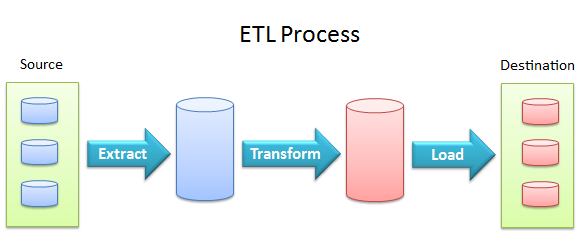Assimilating data
Ask > Aquire > Assimilate > Analyze > Answer > Advise > Act
Extract/Transform/Load

Extract: data is usually stored in a form of a source in a specific type (such as flat files, relational databases, streaming data, XML/JSON files, Open Database Connectivity (ODBC) and/or Java Database Connectivity (JDBC) data sources. Transform: Cleanse, convert, aggregate, merge, and split and modify data so it use useful. Load: Once transformed, it can be loaded into another database or warehouse
Transforming and Normalizing Data
Binning Numerical Data
If numerical data needs to transformed into categorical data, it can be binned into groups
Encoding Categorical Data
If categorical data needs to be transformed into numerical data (for example if a classifier only works with numerical data), it can be encoded. If the data is binary, it can be encoded into 1 or 0. The issue if the data is not binary, is that by adding
Normilization
Fitting data betwen a specific range (such as 1 or -1)
Format conversion
binary conversion, time conversion,
Coordiate Conversion
geo conversion.
For example gps coordiate vs distance
Fourier Transfer
Convert to frequency domain using Fast Fourier Transform or Discrete wavelet transform
Data Cleaning
Outlier Detection
As part of the data cleaning stage, outliers can be detected through outlier detection. Once outliers are determined, they can be removed and then ignored or imputed. Alternatively there are algorithms which robustly ignore (or deal with) outliers.
Imputation
Random sampling, distributions, mean, regression
Filtering
Deduplication
Removing duplicates
Dimensionality Reduction
Principal Compnent analysis
Membership Assignment
First use clustering (X means, canopy clustering) to determine the cluster, than assign a membership.
Feature hashing
Text data: Term Frequecy Inverse Document Frequency
Data enrichment
In addition to cleaning data, data can be enriched by additional sources of data. For example, features can be added based on a specific feature and an additional dataset. For example geography or weather can be added to a dataset to predict if someone is going to take a taxi, bike or walk.